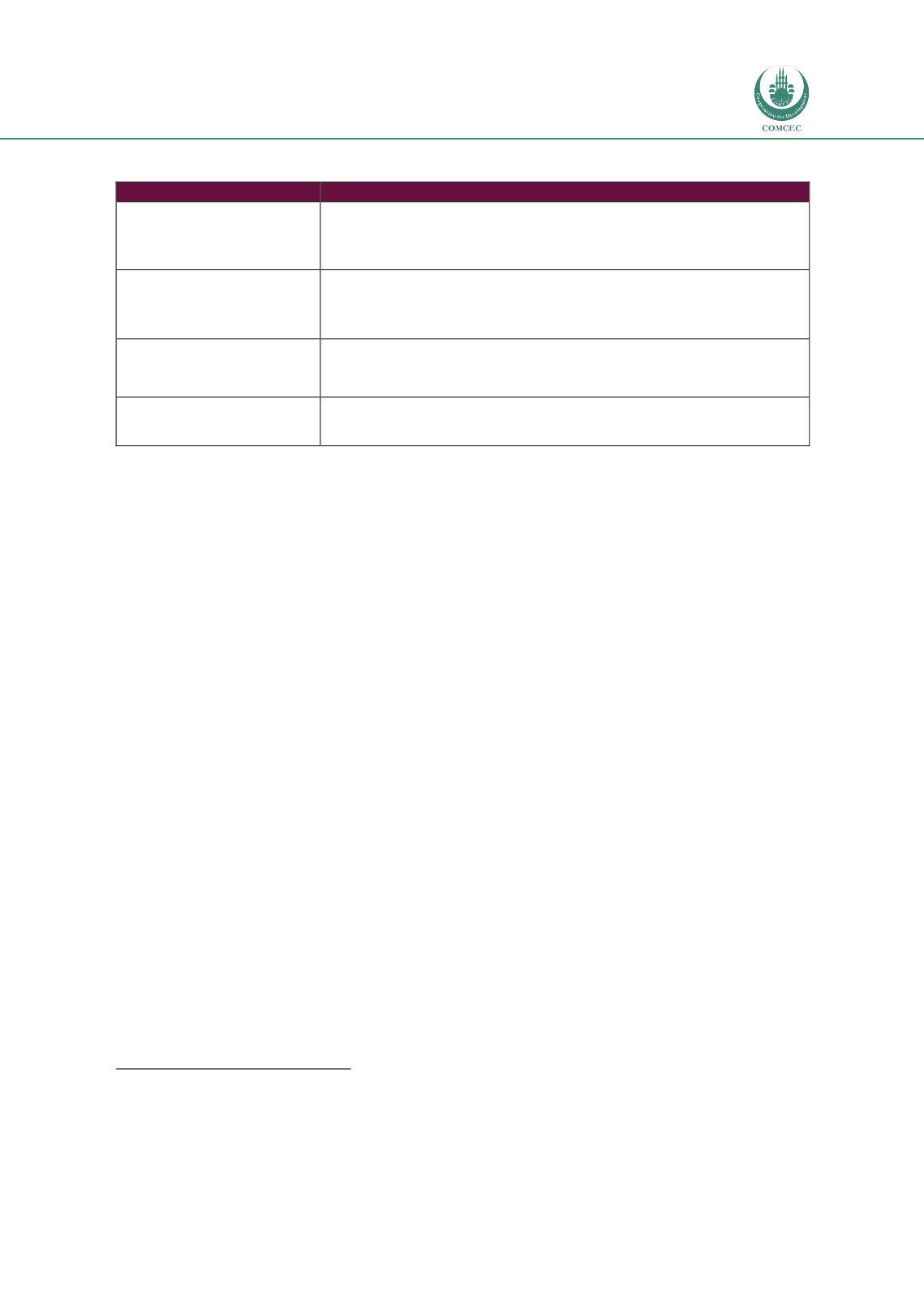

Improving Institutional Capacity:
Strengthening Farmer Organizations in the OIC Member Countries
33
Table 8: Major Yemeni policy interventions and their link to FO capacity challenges
50
Capacity Gap/Challenges Intervention
Policy-related
Represent the interests of FOs in national, regional and global fora.
Formulating policy to plan production based on labor market
demand
Technical:
Production
(Input
Supply
and
Marketing)
Support agricultural cooperatives in the production and marketing
of agriculture produce by supplying subsidized inputs and
machinery
Institutional/Managerial
(Organizational)
Provide education to cooperative members and training for staff
and management
Institutional/Managerial
(Financial)
Providing capacity development to cooperatives in the area of
financial management, planning and project development
According to the ILO, the majority of FOs in Yemen are male-dominated with little managerial
participation by women. However, the Yemeni cooperative law seeks to bolster female
participation in FOs and stipulates that a minimum capital input of 500,000 Yemeni Rials is
needed to establish women’s cooperatives – less than what is required to set up male-only
cooperatives.
51
However, this provision is still viewed by the ILO as having limitations. In many
cases, the ILO reports, this smaller amount is still beyond the reach of many poor rural women,
further entrenching their exclusion from entrepreneurial activity.
2.2.2.
Actions by intra-OIC bodies in support of Farmer Organizations
In addition to the national-level policy interventions described above, a number of regional
bodies are active within the OIC in strengthening agricultural systems, in general, and FOs, in
particular. Some of these bodies are examined below, accompanied by examples of their FO-
related work, in order to illustrate the types of bodies that OIC Member Countries potentially
can coordinate with in their efforts to strengthen FOs.
The
Islamic Development Bank (IDB)
has invested US$4bn over 39 years to develop
agriculture in its member countries, which include all OIC member countries but Guyana. The
first phase of IDB’s Jeddah Declaration, approved in 2008 and amounting to US$20m, provides
agricultural inputs to smallholder famers and access to services, improved infrastructure and
strengthens agricultural institutions.
52
One very recent example of an IDB-funded activity in
support of farmer organizations is found in Cameroon, where the IDB is funding the Livestock
and Fisheries Development Project, which puts farmer organizations and networks at the
center of efforts to develop the livestock industry. This project, launched in late 2014, is
intended to set up three dairy cooperatives, organize poultry producers into networks for
50
This table summarizes and draws on the same sources cited in the preceding paragraphs
51
Ibid
52
Islamic Development Bank, “39 Years in Development” report, 2013

















